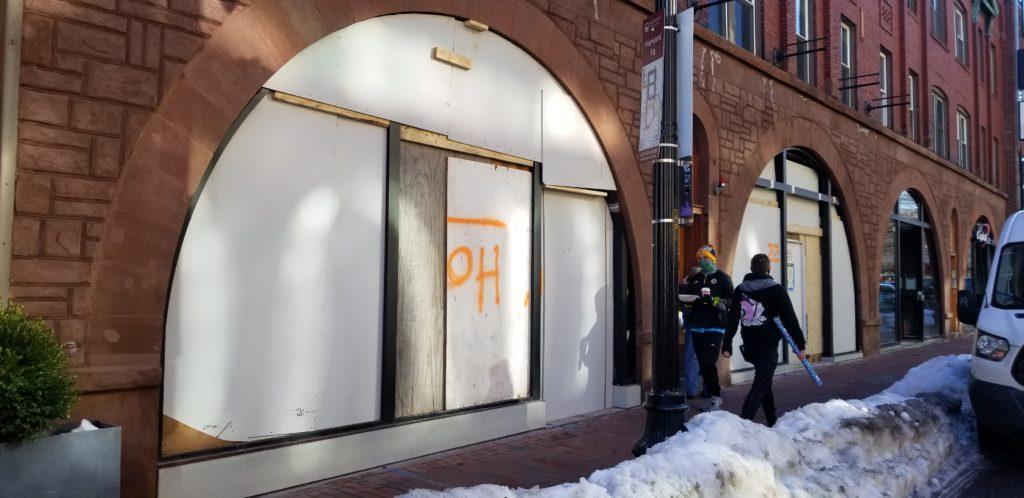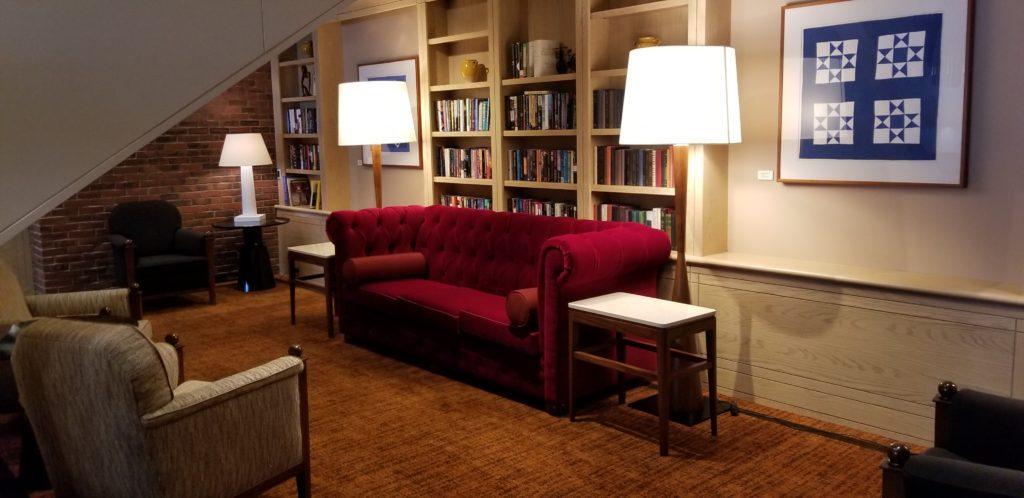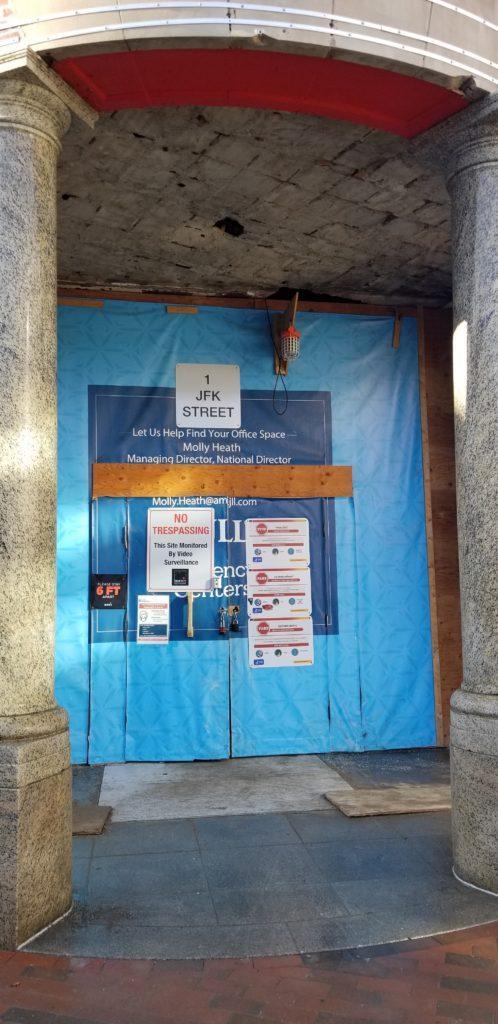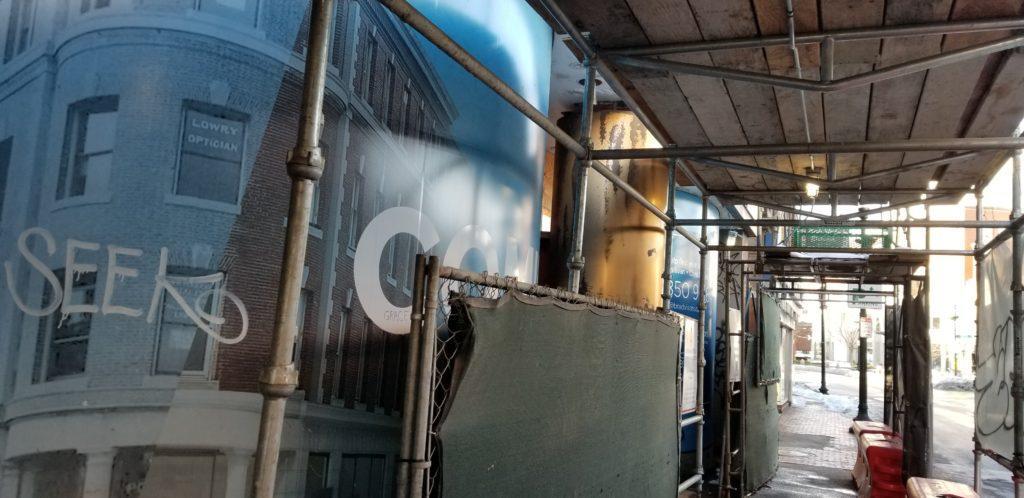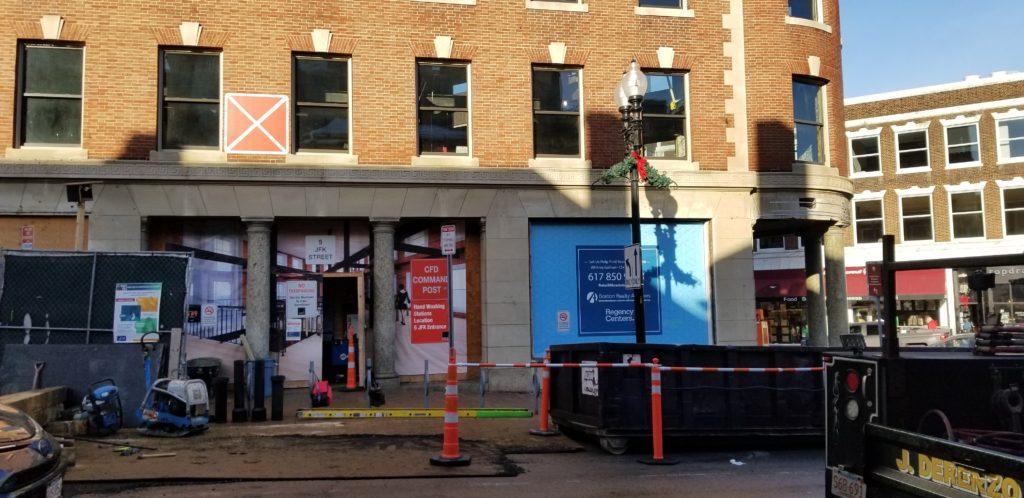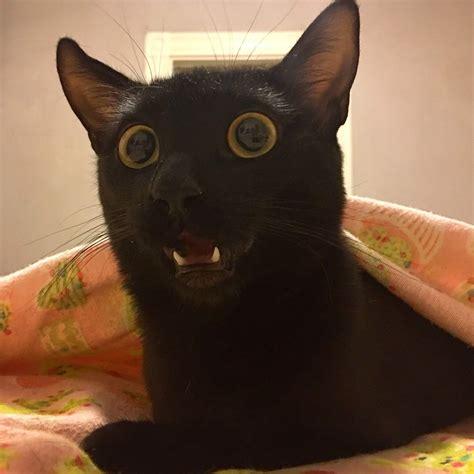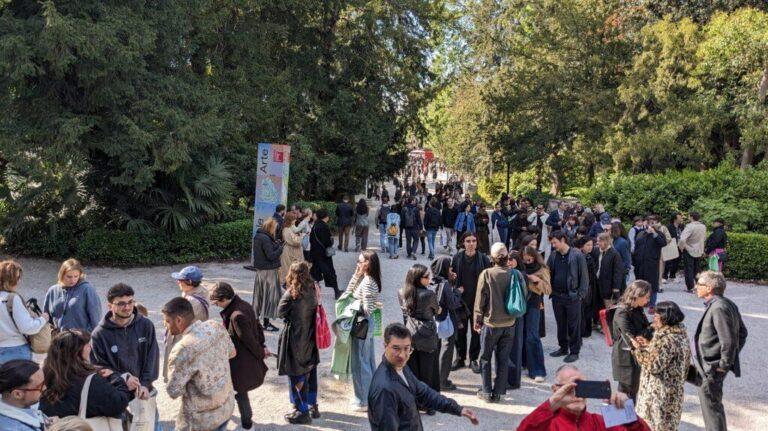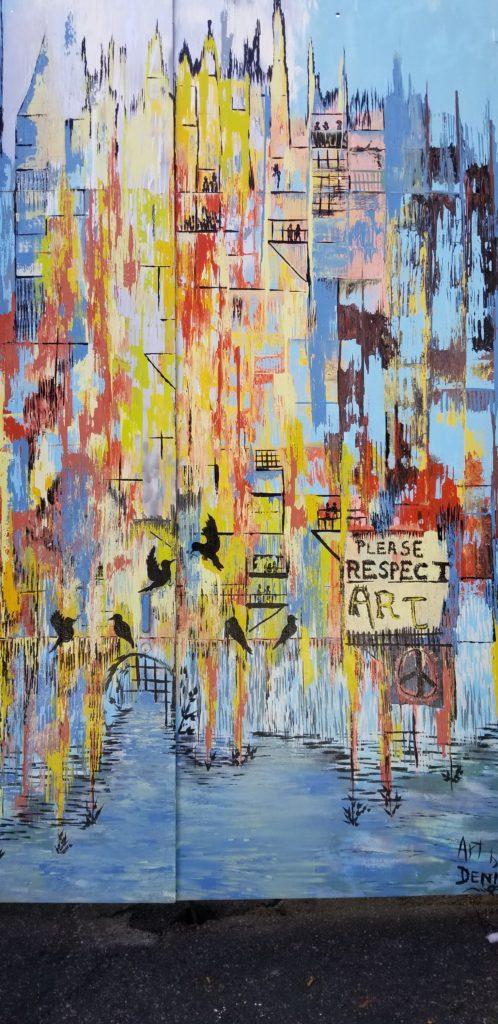
Please Respect Art
A friend told me recently that during Covid, with no students and many beloved businesses closed, she finds Harvard Square so depressing that she no longer wants to go there. I have a different take.
It is true that early in the pandemic the Square was desolate.
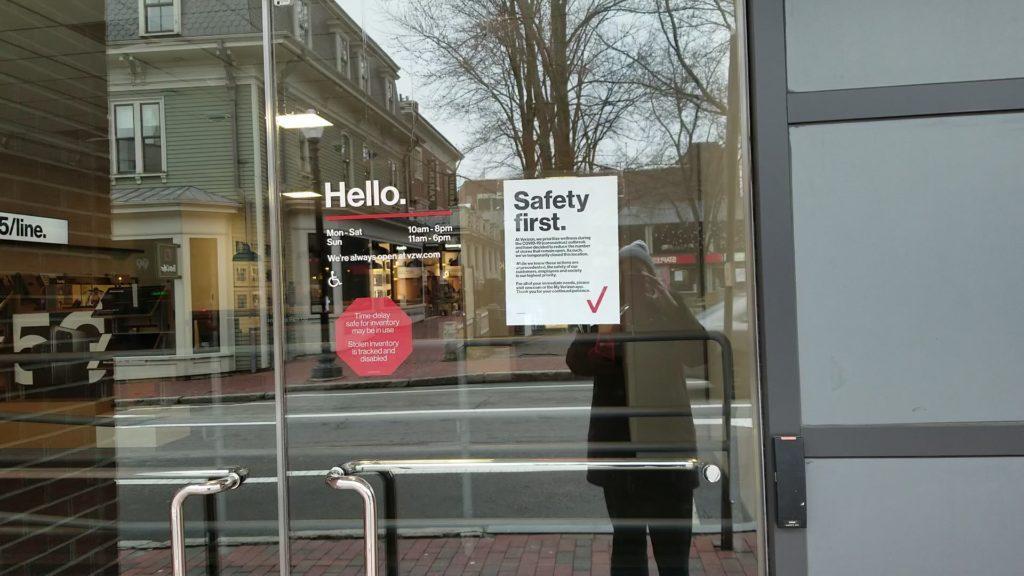
This location is closed. 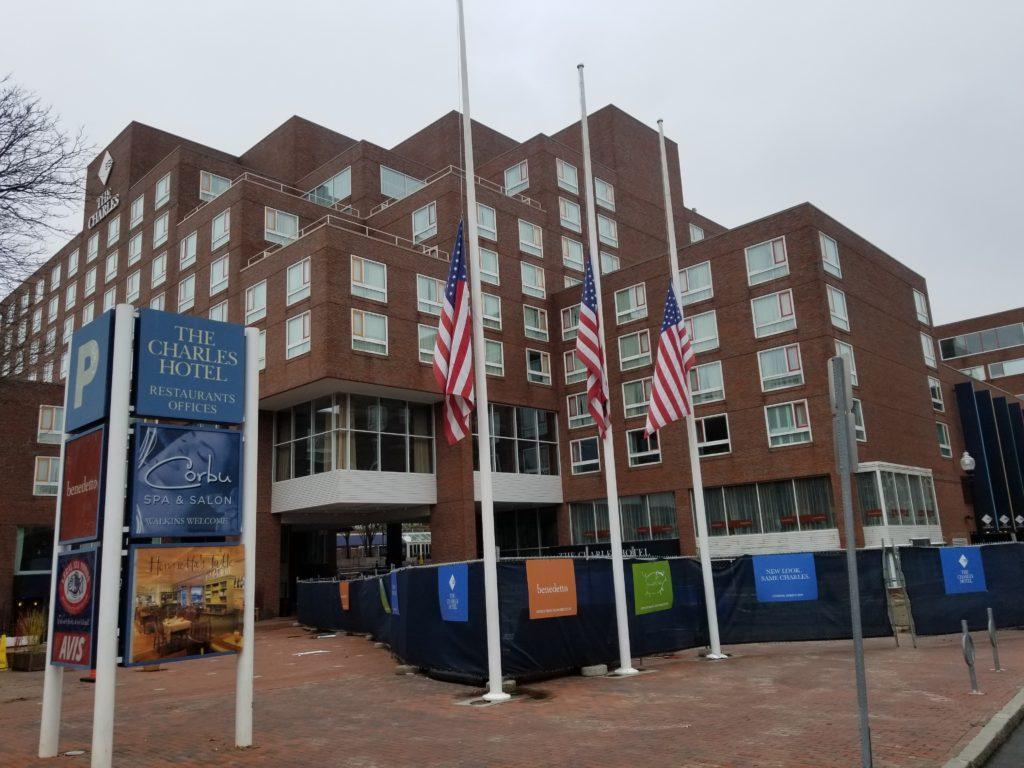
Flags at half mast.
But since the Phase I reopening last summer, I’ve gone there almost every day.
After running on the Charles River, I often head to Henrietta’s Cafe for coffee, outdoors–yes, it’s freezing– but the wonderful staffers there have pretty much gotten me through the year. (Their number is sparser now: with limited seating and very few customers, several servers have been laid off, others work just one day a week instead of their previous five, and those who returned to college in the fall have not been brought back, at all). But those who are there graciously ask me about the book I’m working on, and even laugh at (some of) my jokes.
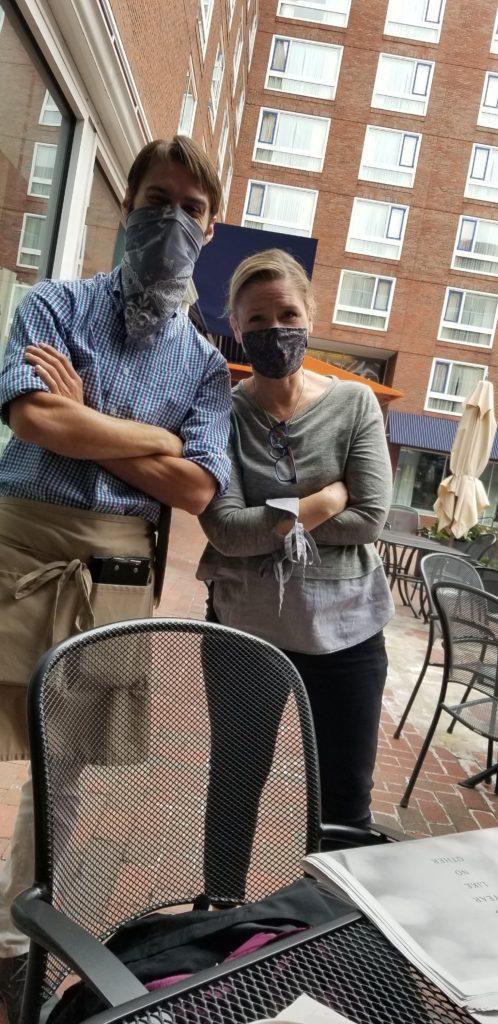
Sheldon and Virginia 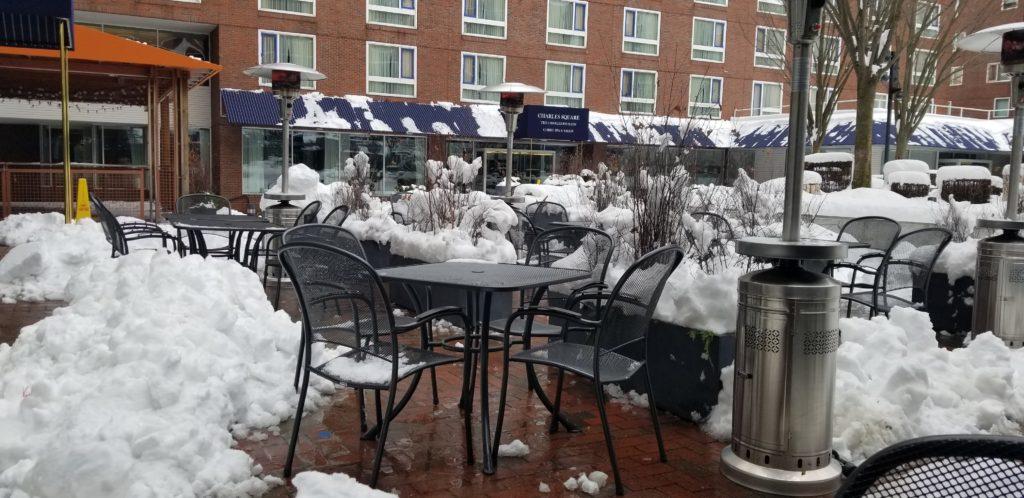
Open for business.
A few weeks ago, I took a longer look –camera in hand. Yes, Dickson Brothers is closed, the “Dewey Cheatem and Howe” office of public radio duo” Click and Clack” is gone, as are tea shops, coffee shops, and stores like Staples that I’ve frequented for years.
The Red House, once my favorite restaurant, still serves great food but mostly, since even before Covid, it’s a pot shop. Book stores-turned- clothing stores have been turned into banks; the former Au Bon Pain is now the Harvard Student Center; Legal Seafoods has been shuttered and sold; the iconic Out of Town News has closed, and the newstand that once stood on the corner, opposite, is now a milk bar.
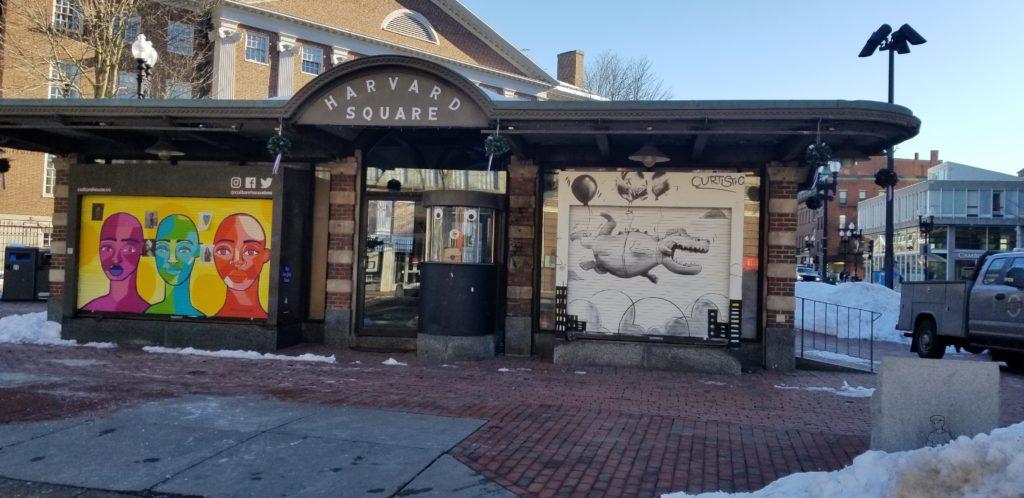
The former Out of Town Newsstand 
The Red House 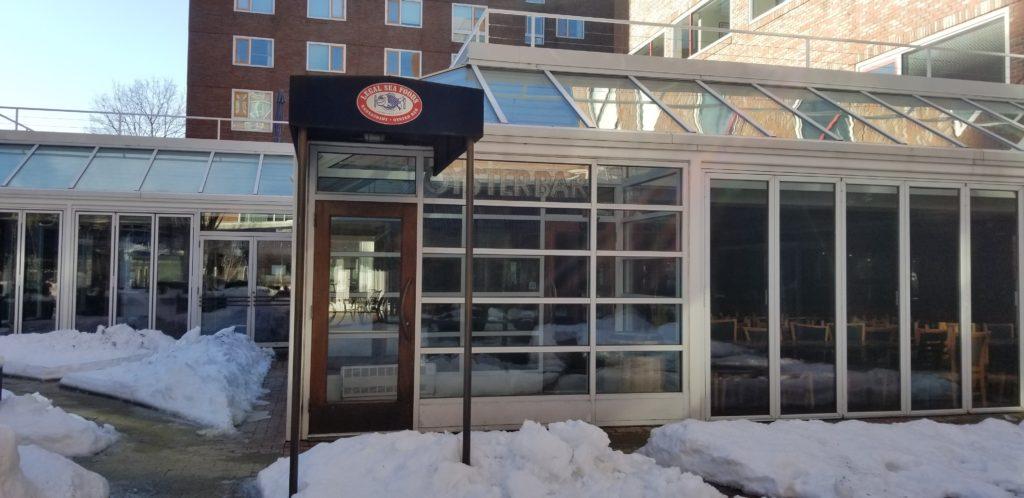
Legal Sea Food has been shuttered and Sold. 
Walking around, I tried to imagine riding a bike into the Square or eating at Charlie’s Kitchen in a plastic hut.
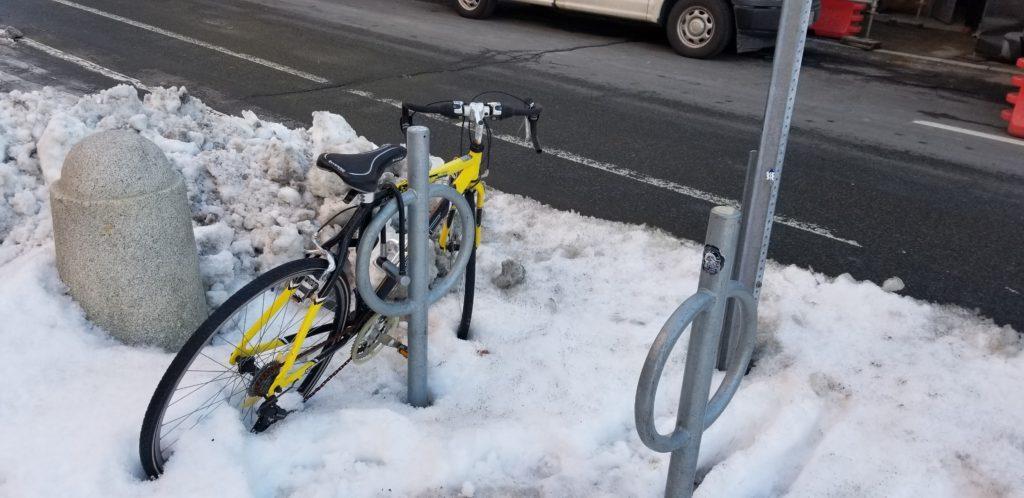

Outdoor Dining at Charlie’s Kitchen
I was pleased to see that Cardullo’s has survived, along with national chain stores like CVS, Starbucks , Peets Coffee, and the Gap…
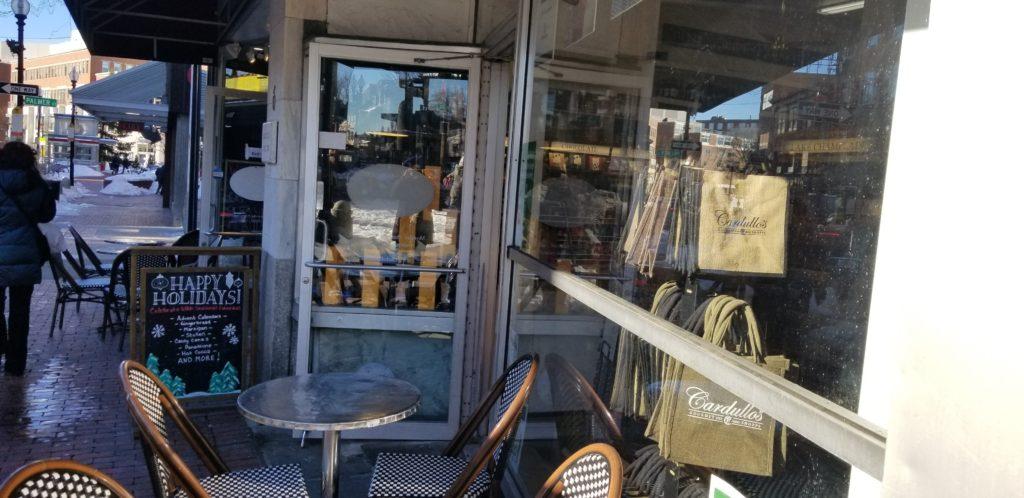
Cardullos has survived 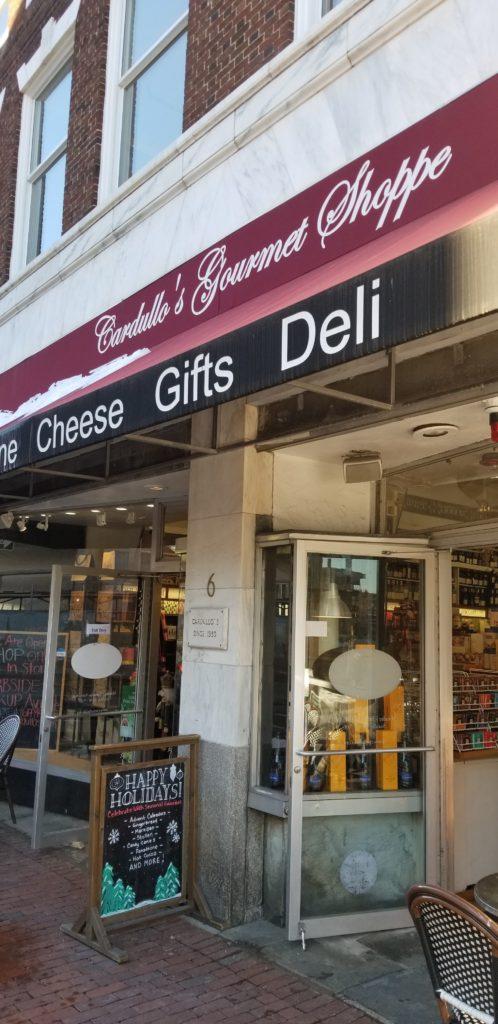
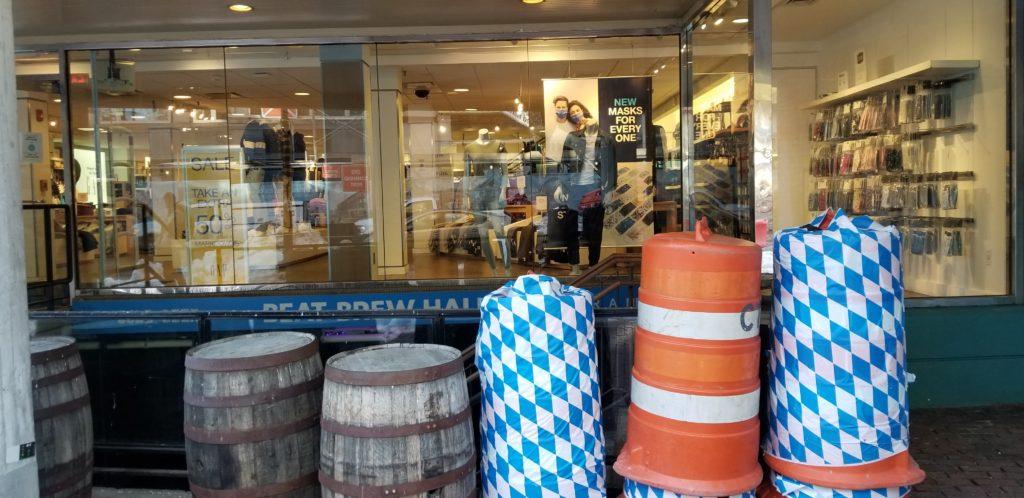
The Gap
At Citizens Bank , I was welcomed like a long lost friend. (In the summer, they cheered me on when I showed up with the pool noodle I carried for social distancing…or, perhaps, they were just overjoyed to see a customer–or any human face) .
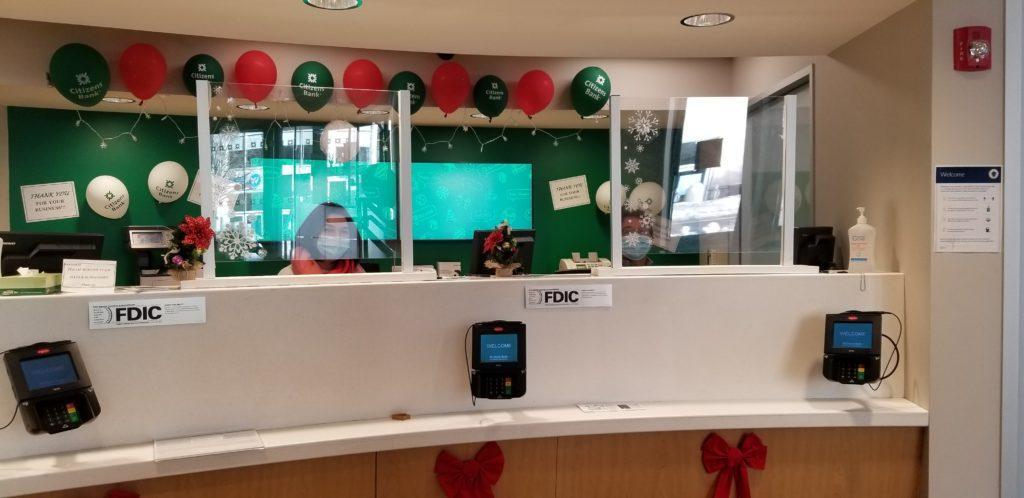
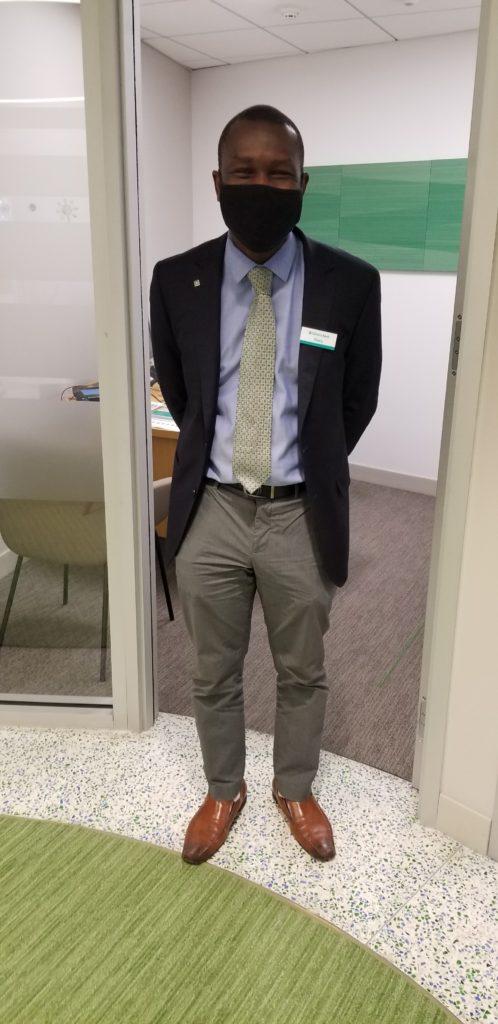
Voury 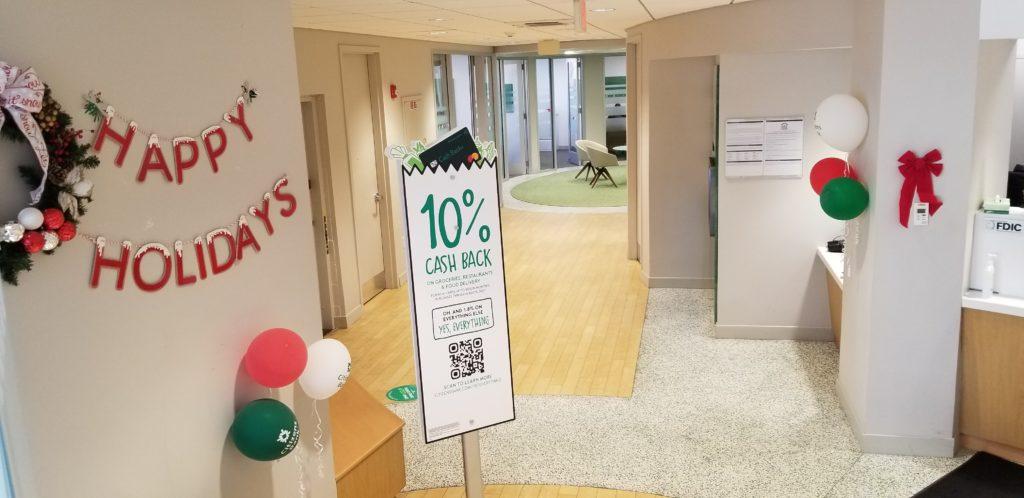
By now, the Charles Hotel has been remodelled–It still has its fancy modern exterior, but inside, the lobby has been divided into smaller, cozier rooms with a historic, bookish feel.
The Coop is under construction; as is the block where Curious George, Deluxe Tea, Urban Outfitters and Dickson Brothers used to be.
I found myself rushing to capture as much of the present as I could before it became the past. In the near-wreckage, I came across this mural signed “by Dennis.”
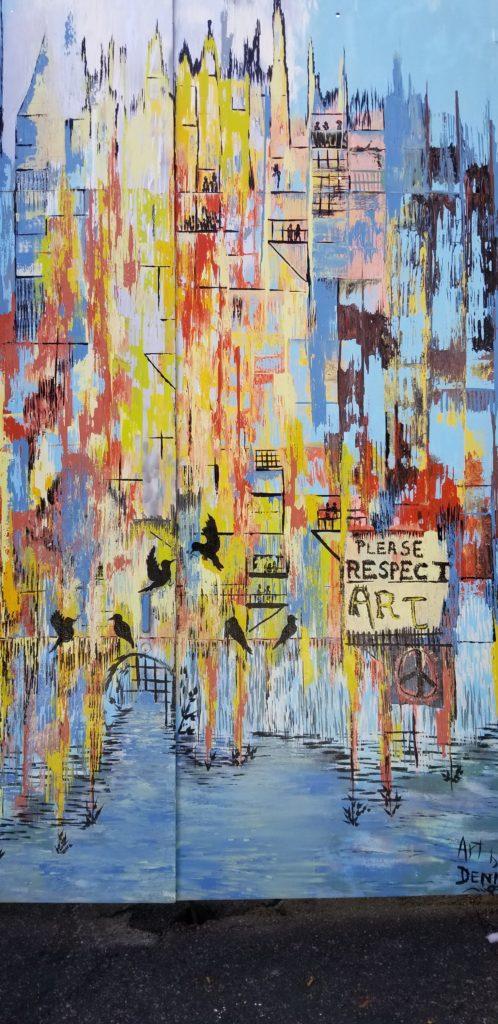
Around another corner, while I shot photos of pictures of the old Square superimposed on what will be walls of the new , a construction foreman yelled out, “You’re not allowed to do that!” I asked, “Why not?” He said, “Just kidding,” and insisted on taking my photo, with my phone (Covid be damned!), alongside a construction truck.
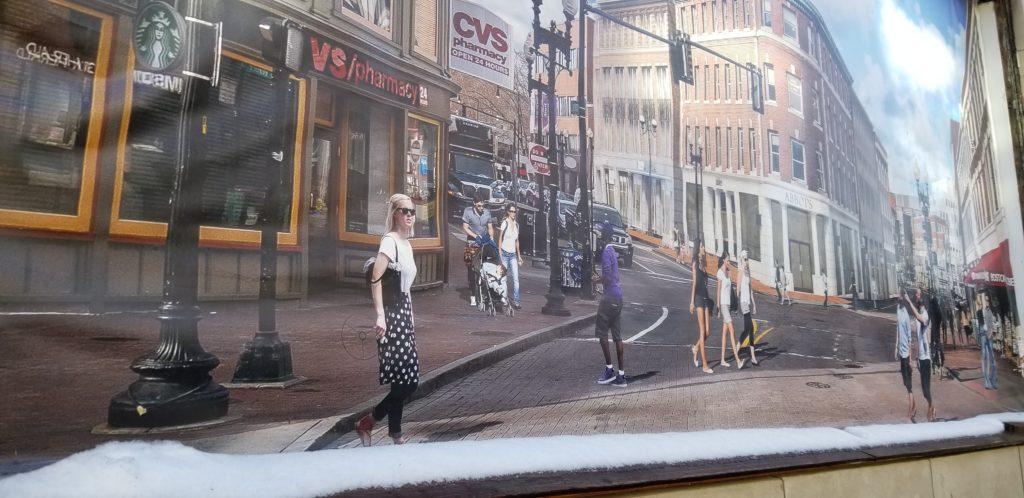
Photo mural of the Square in better days 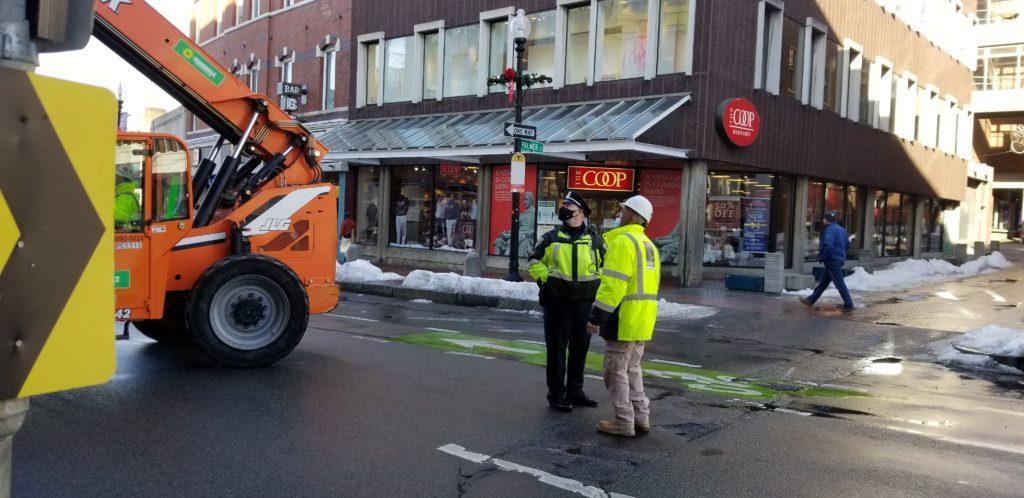
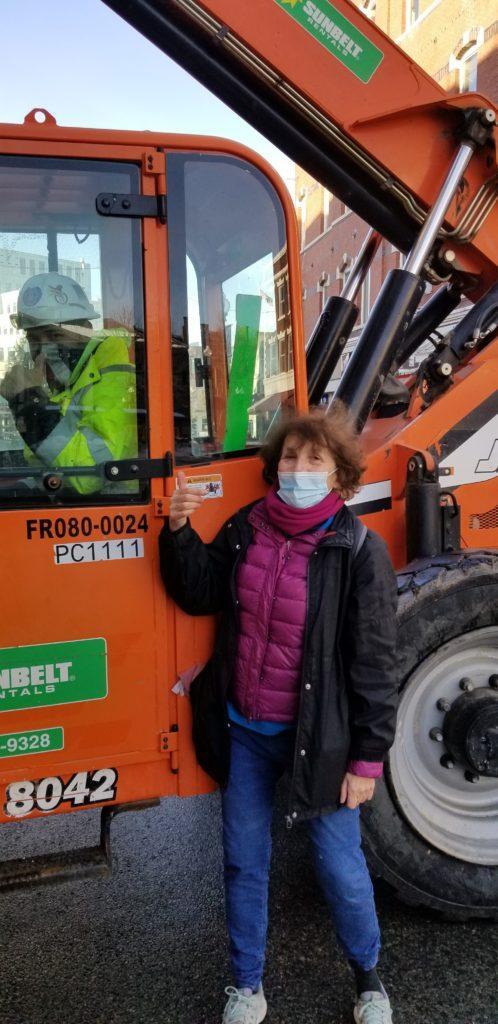
After that, I spritzed on some hand sanitizer and headed home –feeling not depressed but, rather, elated…. by the people, by the energy, and by the beauty of the changing scene: its light, its lines, its colors, its shapes. Snapping photos, I had become part of that scene, experiencing my own transformation, excited to see what the world will look like after Covid, after Trump, after this difficult winter, as we create new futures for ourselves and for one another.
–Anita Harris is an award-winning writer, photographer and communications consultant based in Cambridge, MA.
-New Cambridge Observer is a publication of the Harris Communications Group, a PR and digital marketing firm, also in Cambridge, MA.
